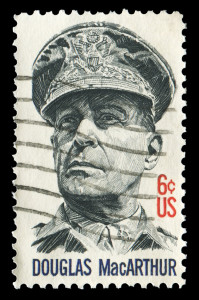 I just finished reading Antony Beevor’s excellent global account of the Second World War. Unlike his other books this one gives you a global picture of the whole war giving you a real feeling of the breadth and depth of the human suffering caused by the ambitions of a handful of all too human men. It should be compulsory reading for anyone who exercises power.
I just finished reading Antony Beevor’s excellent global account of the Second World War. Unlike his other books this one gives you a global picture of the whole war giving you a real feeling of the breadth and depth of the human suffering caused by the ambitions of a handful of all too human men. It should be compulsory reading for anyone who exercises power.
One of the things that stuck me most about the book was how the out of control egos of a few generals, American, British, Russian, but surprisingly not German, worked against achieving the common goal or executing the agreed strategy. It was nearly always about them, rarely about doing what was needed to defeat the enemy, and often at great cost to others.
The clearest example comes from the American General Mark Clark who, during the Italian campaign, was determined to be crowned conqueror of Rome. In May 1944 he disobeyed General Alexander’s direct order to attack North East to Valmontone where his divisions could have cut off the whole German 10th army thereby shortening the Italian campaign by months and saving thousands of lives. Instead he turned his army North West towards Rome purely for the purpose of being remembered as the general who liberated Rome.
Clark wasn’t the only one whose actions served a self-serving fantasy of achieving eternal fame as some type of mythical conqueror. MacArthur, whose obsession to liberate the Philippines, had more to do with his self image of the returning hero than following the most efficient strategy to defeat the Japanese in the Pacific or the Russian General Zhukov who unnecessarily sacrificed the lives of hundreds of thousands of his troops for the sole purpose of reaching Berlin before his compatriot rival General Konev.
Ego and Leadership
There is no doubt that to exercise leadership you need some ego, something that pushes you to stand up in public and take a stand or to defend an unpopular position. However too much ego, far from representing greatness has more to do with pettiness. As Field Marshal Brooke wrote in his diary, “It is astonishing how petty and small men can be in connection with command”. In contrast, great leaders like Eisenhower who really got the job done were characterized by their humility
In business too much ego doesn’t get the job done
In business organizations we see time and time again how self-serving executives carry out actions that have little to do with serving the best interests of their companies but rather are designed to make themselves look good. This is bad leadership. When faced with an opportunity of self-aggrandizement a good leader would do well to ask himself the following questions:
Useful questions for all executives before taking any action
- Why am I here?
- What is my purpose?
- I am doing this for me or for my company?
- How does this action really serve my company’s strategy?
- What consequences will it have on my career if others think I am just self-serving?
It is useful to remember that General Mark Clark is not remembered as the conquering American hero who liberated Rome but rather as the egotistical buffoon who allowed the German 10th army to escape.





Good points Douglas. Altruism vs self interest; a dichotomy?
Thanks for your comment Rodrigo. No, I don’t think it is a dichotomy, in fact I think that there is a very valid form of self-promotion based on making visible real contributions that you or your team have made. However I think those contributions need to be aligned with what your company needs.